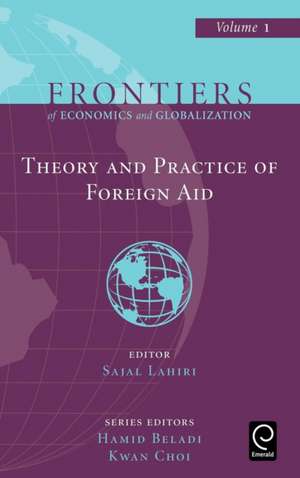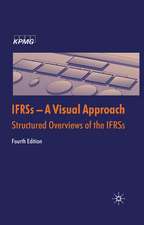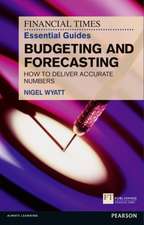Theory and Practice of Foreign Aid: Frontiers of Economics and Globalization
Autor Sajal Lahiri, Hamid Beladi, Kwan Choien Limba Engleză Hardback – 31 mar 2006
On the empirical side, the issue of the effectiveness of aid; the determinants of aid; the allocation criteria for aid; the relationship between aid and trade, and aid and poverty remain as important as ever.
This volume contains a comprehensive analysis of foreign aid from both theoretical and empirical perspectives, written by leading researchers in the field.
* Divided into two parts: Theory of Aid and Empirical Studies on Aid
* Examines aid practices in a variety of countries and under a variety of conditions
Preț: 1174.06 lei
Preț vechi: 1524.75 lei
-23% Nou
Puncte Express: 1761
Preț estimativ în valută:
224.68€ • 243.97$ • 188.73£
224.68€ • 243.97$ • 188.73£
Carte tipărită la comandă
Livrare economică 22 aprilie-06 mai
Preluare comenzi: 021 569.72.76
Specificații
ISBN-13: 9780444527653
ISBN-10: 0444527656
Pagini: 448
Dimensiuni: 152 x 229 x 635 mm
Greutate: 0.79 kg
Editura: Emerald Publishing
Seria Frontiers of Economics and Globalization
ISBN-10: 0444527656
Pagini: 448
Dimensiuni: 152 x 229 x 635 mm
Greutate: 0.79 kg
Editura: Emerald Publishing
Seria Frontiers of Economics and Globalization
Public țintă
Undergraduate and graduate students of development studies, researchers, and policy makers trained in economicsCuprins
I. Theory of Aid
1: Conflict in the Presence of Arms Trade: Can Foreign Aid Reduce Conflict?
2: Poverty, Utilization of Foreign Aid and Corruption: The Role of Redistributive Politics
3: Agglomeration and Aid
4: Does Foreign Aid Impede Foreign Investment?
5: Infrastructure Aid and Urban Unemployment
6: When can competition for aid reduce pollution?
7: Foreign Aid, International Migration and Welfare
8: The Hope for Hysteresis in Foreign Aid
9: A Pareto-improving foreign aid in a dynamic North-South model
10: International Transfer under Stagnation
11: A Dynamic Analysis of Tied Aid
II. Methodological and Empirical studies on aid
12: Evaluating Aid Impact: Approaches and Findings
13: Scaling Up of Foreign Aid and the Emerging New Agenda
14: Aid and Development: The Mozambican Case
15: Aid and Economic Development in Africa
16: Aid and Growth in Kenya: A Time Series Approach
17: What Does Aid to Africa Finance?
18: Aid Effectiveness in the Education Sector: A Dynamic Panel Analysis
19: The Determinants of Aid in the Post-Cold War Era
20: Foreign Aid, History, and Growth
21: Foreign Aid and Export performance: A Panel Data Analysis of Developing Countries
1: Conflict in the Presence of Arms Trade: Can Foreign Aid Reduce Conflict?
2: Poverty, Utilization of Foreign Aid and Corruption: The Role of Redistributive Politics
3: Agglomeration and Aid
4: Does Foreign Aid Impede Foreign Investment?
5: Infrastructure Aid and Urban Unemployment
6: When can competition for aid reduce pollution?
7: Foreign Aid, International Migration and Welfare
8: The Hope for Hysteresis in Foreign Aid
9: A Pareto-improving foreign aid in a dynamic North-South model
10: International Transfer under Stagnation
11: A Dynamic Analysis of Tied Aid
II. Methodological and Empirical studies on aid
12: Evaluating Aid Impact: Approaches and Findings
13: Scaling Up of Foreign Aid and the Emerging New Agenda
14: Aid and Development: The Mozambican Case
15: Aid and Economic Development in Africa
16: Aid and Growth in Kenya: A Time Series Approach
17: What Does Aid to Africa Finance?
18: Aid Effectiveness in the Education Sector: A Dynamic Panel Analysis
19: The Determinants of Aid in the Post-Cold War Era
20: Foreign Aid, History, and Growth
21: Foreign Aid and Export performance: A Panel Data Analysis of Developing Countries





















